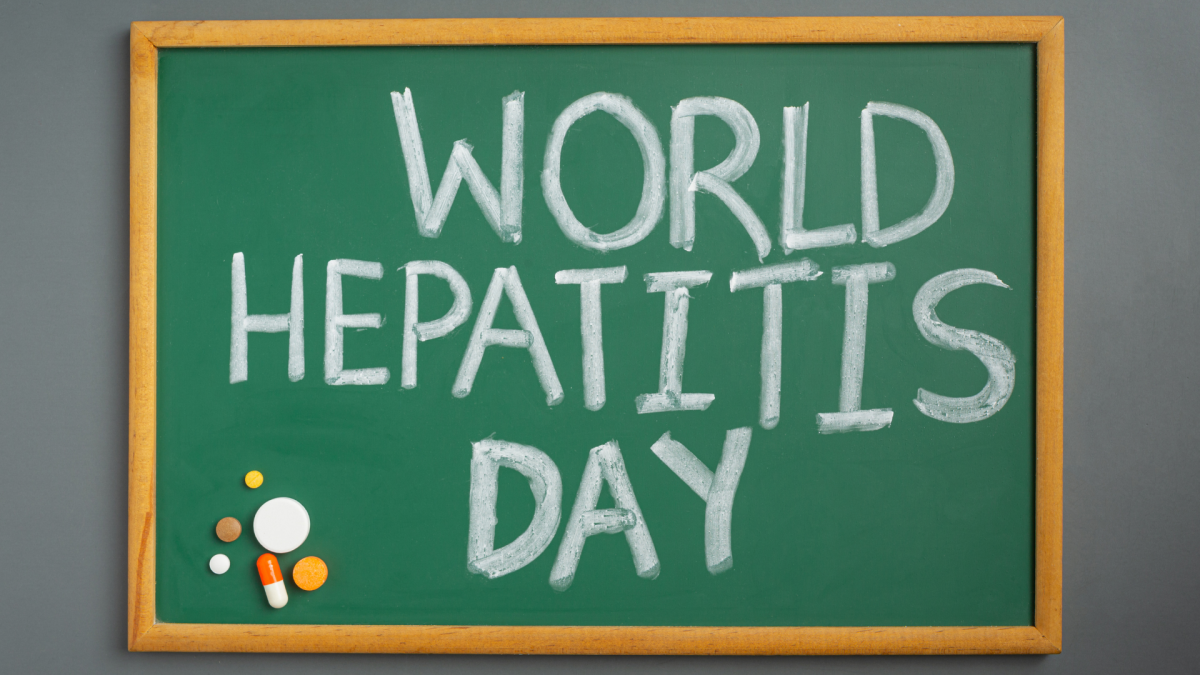Hepatitis affects hundreds of millions of people worldwide, causing acute and chronic disease and killing close to 1.34 million people every year. Hepatitis can cause inflammation of the liver both acutely and chronically, and can kill a person. Organizations around the world, including the World Health Organization (WHO) and CDC, commemorate WHD every year on 28 July to raise awareness about viral hepatitis, which impacts more than 354 million people worldwide. WHD creates an opportunity to educate people about the burden of these infections to influence real change.
WHAT IS WORLD HEPATITIS DAY?
World Hepatitis Day is one of eight official disease-specific world health days designated by the World Health Organization. The annual observance focuses attention on the huge impact of viral hepatitis infection globally – with more than 350 million people worldwide living with either chronic hepatitis B or C. World Hepatitis Day (WHD) is recognized annually on July 28th, the birthday of Dr. Baruch Blumberg (1925–2011). Dr. Blumberg discovered the hepatitis B virus in 1967, and 2 years later he developed the first hepatitis B vaccine.
Viral hepatitis — a group of infectious diseases known as hepatitis A, hepatitis B, hepatitis C, hepatitis D, and hepatitis E — affects millions of people worldwide, causing both acute (short-term) and chronic (long-term) liver disease. While deaths from tuberculosis and HIV have been declining, deaths from hepatitis are increasing.
WHAT ARE THE DIFFERENT TYPES OF HEPATITIS OCCURING AROUND THE WORLD?

Picture 1. Image is for illustration only
The five hepatitis viruses – hepatitis A, hepatitis B, hepatitis C, hepatitis D, and hepatitis E – are distinct and can spread in different ways, affect different populations, and result in different health outcomes.
- Hepatitis A
-
- Caused by the hepatitis A virus (HAV)
- HAV is found in the stool and blood of people who are infected
- HAV is very contagious
- The virus spread through personal contact with an infected person or through eating contaminated food or drink
- Symptoms include fatigue, nausea, stomach pain, and jaundice
- The best way to prevent hepatitis A is to get vaccinated
- Hepatitis B
-
- Caused by the hepatitis B virus (HBV)
- Spread when blood, semen, or other body fluids from a person infected with the virus enters the body of someone who is not infected through sexual contact; sharing needles, syringes, or other drug-injection equipment; or from mother to baby at birth
- Symptoms can include fatigue, poor appetite, stomach pain, nausea, and jaundice.
- For many people, hepatitis B is a short-term illness. For others, it can become a long-term, chronic infection that can lead to serious, even life-threatening health issues like cirrhosis or liver cancer.
- The best way to prevent hepatitis B is to get vaccinated
- Hepatitis C
-
- Caused by the hepatitis C virus (HCV)
- Spread through contact with blood from an infected person, by sharing needles or other equipment used to prepare and inject drugs
- Chronic hepatitis C can result in serious, even life-threatening health problems like cirrhosis and liver cancer
- Often have no symptoms, but when symptoms appear, they often are a sign of advanced liver disease
- There is no vaccine for hepatitis C
- The best way to prevent hepatitis C is by avoiding behaviors that can spread the disease, especially injecting drugs
- Hepatitis D
-
- Also known as “delta hepatitis"
- Caused by the hepatitis D virus (HDV)
- Only occurs in people who are also infected with the hepatitis B virus
- Spread when blood or other body fluids from a person infected with the virus enters the body of someone who is not infected
- Can cause severe symptoms and serious illness that can lead to life-long liver damage and even death
- People can become infected with both hepatitis B and hepatitis D viruses at the same time (known as “coinfection”) or get hepatitis D after first being infected with the hepatitis B virus (known as “superinfection”)
- There is no vaccine to prevent hepatitis D. However, prevention of hepatitis B with hepatitis B vaccine also protects against hepatitis D infection
- Hepatitis E
-
- Caused by the hepatitis E virus (HEV)
- HEV is found in the stool of an infected person
- In developing countries, people most often get hepatitis E from drinking water contaminated by feces from people who are infected with the virus
- Symptoms of hepatitis E can include fatigue, poor appetite, stomach pain, nausea, and jaundice
- Young children with hepatitis E, usually have no symptoms. Except for the rare occurrence of chronic hepatitis E in people with compromised immune systems, most people recover fully from the disease without any complications
- No vaccine for hepatitis E is currently available
At least two billion people in the world have been infected with the Hepatitis virus, not a few of which have resulted in death. Therefore, through the commemoration of World Hepatitis Day, the medical world has made concern about the Hepatitis virus a global agenda (Global Public Health Concern). On this occasion, World Hepatitis Day tries to raise public awareness to be more aware of the importance of preventing the spread of this virus. Starting from a healthy lifestyle, good consumption patterns, to take precautions by vaccinating.
References:
- WHO. (2022). Bringing hepatitis care closer to you
- Worldhepatitisdayorg. (2022). We Can’t Wait For A World Without Hepatitis
- CDC. (2022). World Hepatitis Day — July 28th
- KEMENKES RI. (2022). Selamat Hari Hepatitis Sedunia! Sayangi Hatimu, Kenali Dan Antisipasi Hepatitis


